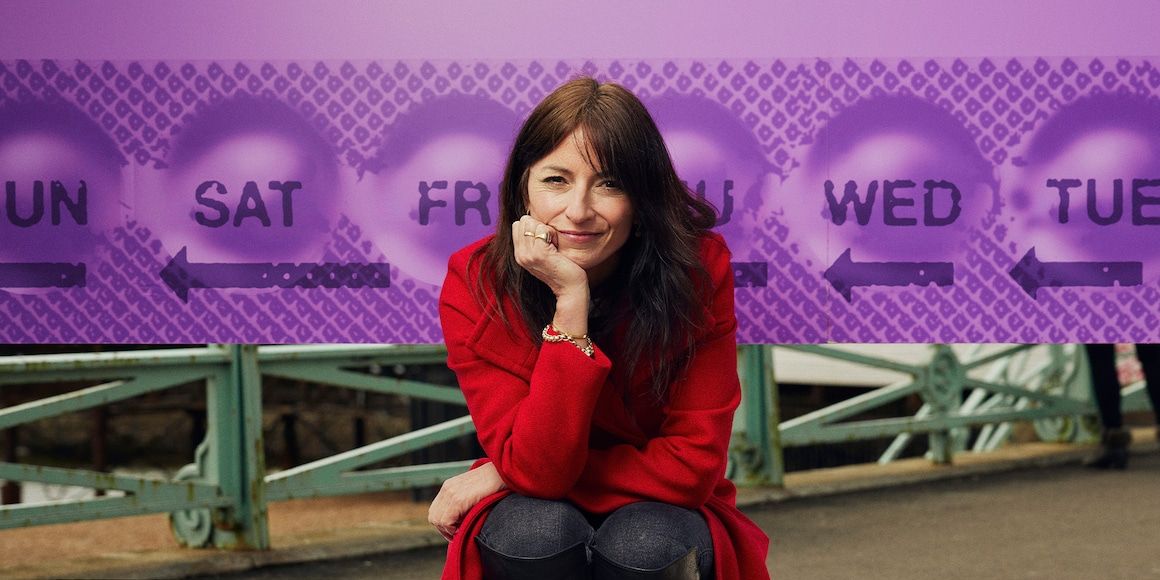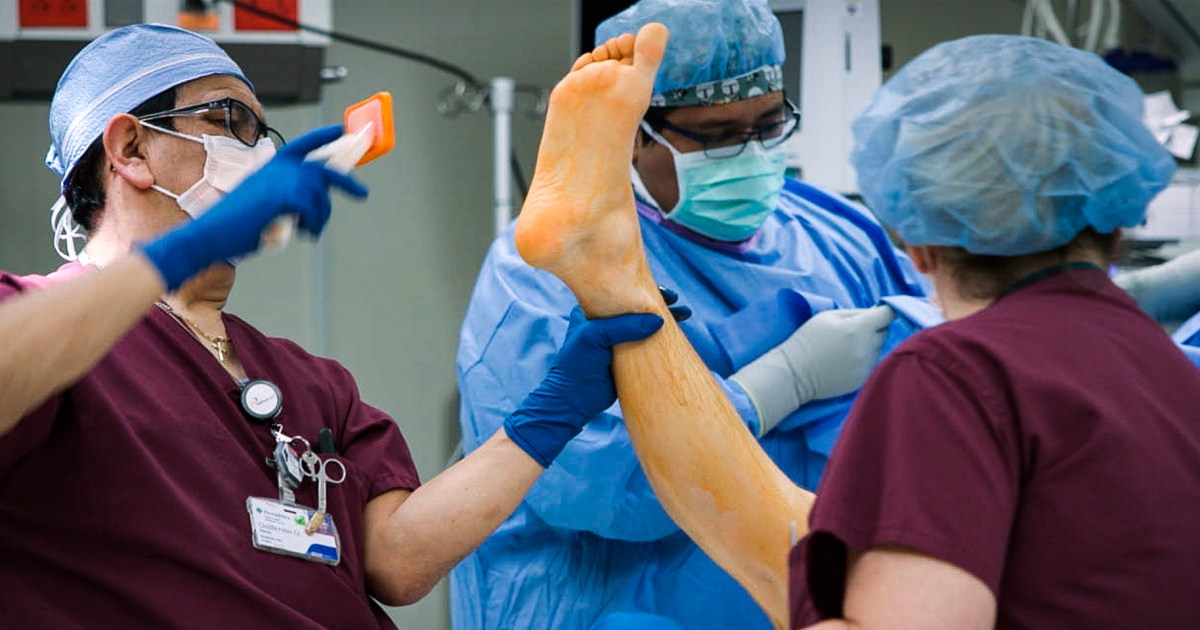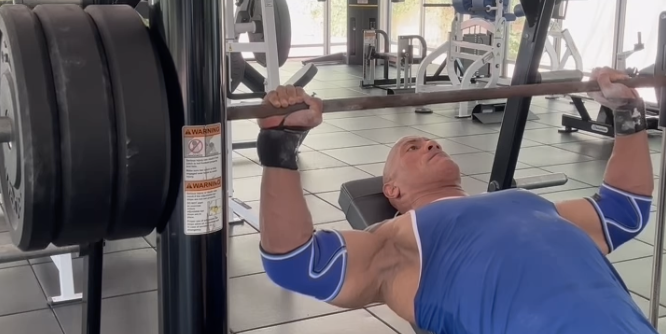First, I should declare a few interests. I went to the same school as Gary Lineker, though he was a few years below me, and while I remember him because he was already making local paper headlines as a footballer and cricketer, he has no memory of me. Our next tie-up was via the Bloodwise charity, for which I was once chairman of fundraising and he was a prominent supporter, his son George having survived leukaemia. In the political arena, we worked together on the People’s Vote campaign for a second Brexit referendum. When Burnley were in the Premier League, I regularly offered him my views of the Match of the Day running order, a habit I shall resume now we are back in the big league. And finally, as the BBC and others felt compelled to point out when I went out to bat for Lineker on the media in support of his battle with the BBC and the Tories which followed his airing his views on Suella Braverman’s ‘stop the boats’ propaganda, his Goalhanger company produces my podcast.
Defensive throat clearing over. The truth is Lineker, now 62, needs no introduction. One of the country’s most famous footballers who went on to become one of the country’s most famous broadcasters, he has been presenting Match of the Day since 1999 and has for some time been the BBC’s highest-paid presenter. There are few people with profiles such that a single exchange on Twitter could become a front-page, bulletin-leading controversy. But Lineker has been making news all his life – and staying calm about it. For Talking Heads, meeting at his home in Barnes which just a few weeks earlier had been besieged by media chronicling his every move, we start with that calm, which has served him so well in both of his careers.
AC: So, in this series I tend to ask sports people the same first question: how much of your success is down to physical attributes, and how much mental?
GL: Well, you can’t be a top athlete without the right physical attributes, but your mentality will always be a big factor, too. I’ve been incredibly lucky on that front. I have ups and downs like anyone else, but I am generally very calm, don’t have much of a temper, and I’m pretty good at dealing with setbacks.
AC: You’ve never had what I would define as mental ill health, such as depression or
GL: No. Ups and downs, sure. Serious mental health problems, no.
AC: Where do you think your calm comes from?
GL: If we are talking genes, then I’d say it comes from my mother. She was amazingly even-tempered. My dad had a bit of a temper, but I think I was more like my mum. There was not much that would get her down, and I’m a bit like that.
AC: You’ve had some pretty hard stuff to deal with, though. Not just defeats in big matches, but your son George being very ill as a child, your parents’ divorce which I know hit you hard, your own divorce, the death of both your parents in recent years, the occasional scandal and controversy to deal with…
GL: Sure, but everyone has tough stuff to deal with, and a lot of people way worse than anything I have had. It’s why after the recent hoo-ha about refugees and what I said on Twitter…
AC: We’ll come to that.
GL: …I said that whatever problems I had faced as a result of it, it was as nothing compared with desperate people fleeing war or persecution, or famine or climate change. So whatever life throws at me, I know I have been very lucky in so many ways. I’ve had two great careers, both times doing something I love, fabulous kids, financial security, good friends. So, I guess I do have this ability to look on the bright side, whatever is going on around me.
AC: Is there not a disconnect though, between a massive will to win, which top sportsmen have to have, and such a calm mindset?
GL: Well, for some people, yes. You see players who have to be pumped up, totally psyched. To perform to their best, they have to live on the edge. But I’m not like that. I perform best when I’m calm. Goal-scorers have to be cool and calm. It is hard enough even if you are calm. I see players getting fouled, and they retaliate, but who are they helping? If I was fouled, I’d say to myself, ‘Good job, we’ve got a free kick, we’ve got a chance from this.’ I would sometimes moan to the refs but I would never swear at them, never abuse them.
AC: Still, not a single red or yellow card in your entire football career – that is pretty amazing. Is that where it comes from, your calm – an ability to not over-react?
GL: I played in an era when defenders could kick lumps out of you without the ref being too bothered. I don’t know if I would be able to avoid the occasional yellow in the modern game. I’d probably get one for having big ears. The closest I ever came to getting one was when I was playing for Barcelona. The ref gave a decision against me, I laughed, and I could see him reach for his pocket. I said, ‘Oh come on, you can’t book me for laughing!’ And he stopped himself. I’m quite proud of my record on that front.
AC: Did you always know you would make it as a footballer?
GL: Not at all. In fact, as a kid I would have said cricket was my best sport. I was tiny growing up, a really late developer – I didn’t reach puberty till I was about 17, which was really embarrassing in the showers, I must say – and then from 17 to 18 I had a growth spurt, and suddenly people thought I might have it in me to be a professional footballer.
AC: Did you think that?
GL: Not really, no. I was honestly a bit surprised when Leicester took me on as an apprentice. I never felt I was at that level. And I was probably into my mid-20s before I felt comfortable with the idea that I was a proper professional footballer. Right up to the time I became an established international, at every level I played I thought, ‘I’m going to get found out here.’
AC: So you had a bit of impostor syndrome?
GL: I did. I would look at other players in training or in matches and think they were just so much better than me. There was one time when Jock Wallace had just been made Leicester manager, and he was watching a reserves game I was playing in. He came into the dressing room at half time and absolutely bawled me out: ‘You lazy little shite, what are you playing at?’ Which was weird, because we were two up and I’d scored both goals. Then at the end of the match, he was in and at me again, said he wanted to see me in his office first thing. I hardly slept. I’m thinking I’m finished; the new manager thinks I’m useless, and maybe because I never saw myself as top level I was thinking he has a point. Then I go in to see him and he sits me down, looks me in the eye and says, ‘Son, you were absolutely magnificent last night.’ So, I said, ‘What was all that about then, the “lazy little shite” stuff?’ And he says, ‘I just wanted to make sure you keep your feet on the ground.’
AC: I’m not sure managers could get away with that kind of approach these days.
GL: Probably not. But it didn’t harm me. It made me realise I had to work hard, not go out, not mess about, understand what it meant to be a professional footballer. It is so easy to go off the rails as a young player, especially now with the money and the fame and the media all over you.
AC: Do you resent the money today’s players get compared with your generation?
GL: Not at all. Good luck to them.
AC: You were one of the first English players to go abroad when you played for Barcelona. Did the impostor syndrome not kick in then, at one of the biggest clubs in the world?
GL: I was at Everton, and I was really happy there. I was sure we were going to win stuff. Then they call me in and tell me Barcelona have made a bid and that they’ve agreed a price. I honestly didn’t know what to do. I didn’t have to go. Michelle [then wife] and I talked about it for ages and eventually we got four pieces of paper. I wrote ‘Yes’ on one, ‘No’ on the other, and she did the same. We put them in a pot, and we pulled out one each, and they both said ‘Yes’.
AC: What if it had been one each?
GL: Happily, we didn’t have to deal with that!
AC: You learned the language, which English players don’t always do.
GL: I looked at the ones who had gone abroad before and done well – players like Ray Wilkins, Kevin Keegan, Trevor Francis, Tony Woodcock. They immersed themselves, so Michelle and I had three hours of Spanish tuition every week, and I really enjoyed it. I love being able to speak Spanish.
AC: How much did you know about the politics of Spanish football?
GL: Not much, but you learn fast. The rivalry with Real Madrid is about much more than football. They were seen as representing Franco’s Spain, and Barca’s identity is interwoven with the struggle for independence for Catalonia. When you walk into the empty stadium, you see the words ‘mes que un club’ in giant letters on the seats. It’s Catalan for ‘more than a club’, which speaks to a political identity and a philosophy that you feel very strongly when you’re there. There was a period when the Catalan language and the Catalan flag were banned, and people felt the club kept that identity. They would go to matches and nobody was going to stop them speaking Catalan. In the 1930s, one of the club’s presidents, Josep Sunyol, was killed by Franco’s troops without a trial. So when you see someone like Pep Guardiola campaigning as he does, you see why. It runs deep for the people there.
AC: Did it politicise you at all?
GL: I certainly found it interesting, and it gave me a sense of why sport provokes the kind of passion that sometimes goes beyond what some people might view as normal.
AC: How political are you?
GL: I’ve always been interested in politics. And I know how much it matters. But I am not politically tribal in the way someone like you would be. My dad was a big fan of Maggie Thatcher. I’ve voted for different parties at different times. The right-wing papers like to call me a leftie, but I wouldn’t say I was very left wing. I am somewhere in the centre, probably more centre-left at the moment, certainly not right wing. I think I am your classic floating voter.
AC: When I’ve spoken to you about this before, you’ve said, ‘I will never voice my opinions because there’s no point. You just end up with 60% of people hating you.’
GL: (laughs) Not wrong.
AC: So, do you wish you hadn’t voiced your opinions on the government’s policy around refugees and asylum, given the fuss it caused?
GL: When I sent that tweet, it honestly never even crossed my mind that it would lead to where it went. I’ve worked with refugees’ charities for years. So, when I saw the Suella Braverman film, I said I thought it was pretty awful. Then the ‘stick to football’ people weighed in and I replied to one of them, just saying there was no massive influx, the UK takes far fewer refugees than other European countries, this is a cruel policy, and the language used in the debate reminds us of the debate in Germany in the 1930s. I think that is factually accurate.
AC: So, when did you realise it had kicked off?
GL: The next day. I always turn my phone off when I go to bed. I don’t turn it on again till I’ve had a coffee in the morning. So, the next morning I woke up to more than 200 WhatsApp messages. I thought something must have happened to one of the kids. Then I opened the first message and it was a picture of the Mail front page, saying I was comparing the government to the Nazis. So, my first reaction was relief that nothing bad had happened.
AC: But then it ran out of control?
GL: That’s what papers like the Mail do. They turn something you’ve said into something you haven’t said and whip it up into a huge row. It was totally out of proportion, but that is what happens. Then the politicians pile in and the BBC felt they had to do something. The thing is, when the new social media guidelines were brought in, I said fine, but we agreed I would not stop occasionally tweeting about two issues in particular: climate change and refugees. I wasn’t prepared to back down on that, especially as I felt and still feel that what I tweeted was fair and true. I wasn’t abusive, I wasn’t saying she was a Nazi. I talked about the use of words like ‘invasion’ and ‘swarms’ and ‘criminals’ and ‘rapists’, which I think we should be very careful about because it has real-life consequences.
AC: Was there a moment you thought you’d presented your last Match of the Day?
GL: I guess I must have, because when they said I had ‘stepped back’ and the row was raging, it was hard to see how it got resolved unless they backed down. And I think the key moment was when the other presenters and then the commentators made it clear they wouldn’t go on if I was taken off air. I really found that incredibly moving. I had a tear in my eye when I heard Wrighty and Alan Shearer had pulled out. Ian had told me he would do it, but it is one thing to say it, another to do it. Then one by one the others pulled out, and even some of the players and managers said they wouldn’t do interviews. To be fair to Tim Davie, he admitted they had got it wrong and sorted it out. I love the BBC and I was very glad to be back on air and talking about football again.
AC: Will it make you think twice about tweeting about politics again?
GL: I always think twice. I have three rules: I never tweet if I’ve been drinking, I never tweet if I’m angry, and I always read the tweet back before hitting send. If I have 1% of doubt, I don’t post it.
AC: So, what do you think of people telling you to ‘stick to football’?
GL: There is always a political element to sport. It’s naïve to think you can separate them completely. And I’m incredibly proud of the way some of today’s players have used their profile to make change. Marcus Rashford shouldn’t have had to run the campaign he runs on food in schools, but he did it because he believes it so strongly, and he got the government to change policy. Good on him. Or the way the Premier League captains got together during the pandemic and raised money for the NHS. Brilliant. Or Raheem Sterling and the way he has campaigned on racism. If footballers choose to use their profile to try to make change like that, we should celebrate that, not look to bring them down.
AC: Do you think the sport treats young players well?
GL: Well, it is a fact that most won’t make it. For every Marcus Rashford or Raheem Sterling, there are thousands who maybe get as far as a trial or one of the academies, and that is as far as it goes. My son was at the Academy at Chelsea for a while, and I would go and watch. There were hundreds of kids there, all able to say they were with the Academy, and their parents are there, thinking their kid could be set for the big time. But I know that one, two, maybe three will actually get to play at the top level. So that is a lot of disappointment in the making.
AC: How did you and your son deal with that?
GL: In one way it is harder for a kid who has a dad who has been an England international. But in another it is easier, because he knows he is financially secure, and my message was always just play to enjoy it and you will find your level. But for a lot of those kids and their parents, they are maybe looking at it as a way of escaping poverty or building a new kind of life, and for most they won’t make it. The ones who do have all got something special. So many want to be a pro. When I hear people lambast players on radio phone-ins, they have got no idea how good you need to be to make it as a pro with any club.
AC: Did you find it hard to stop being a player?
GL: No. I knew when my time had come, and I had already decided that I was going to try to make a go of a media career. I was always fascinated by the media coverage; I used to write match reports when I was a kid. I often wondered why they didn’t have people who had actually been footballers doing the big presentation jobs. Jimmy Hill did it a bit, Bob Wilson did it, but they were exceptions. I looked at people like Sue Barker and David Gower and I felt their knowledge of their sports added something to their presentation of tennis and cricket. I wanted to do that for football.
AC: Did it come naturally?
GL: Not at all. I found punditry easy enough, but presenting is totally different. You’ve got so many moving parts and you’re trying to hold it all together. I did Football Focus for two years and I would go home thinking I was never going to master it. I guess I was never quite bad enough to be dropped though, and with time I got much more confident. It was a bit like my football. It took a while for me to accept that I was up to performing at the top level.
AC: But presumably it is very much second best to playing?
GL: Absolutely. But you can’t play for ever. I remember talking to Michael Owen about this. He trains racehorses, and I said to him, ‘When one of your horses wins, is it the same feeling as scoring a goal in a big game?’ And he said, ‘Nothing is the same as scoring a goal in a big game!’ He’s right. You will never replace the sense of excitement before a massive game, or the sense of elation if you win. So yes, it is second best, but what are you going to do? You can’t do nothing, just because you have to stop playing…
AC: So how hard is it to give that up?
GL: For a lot of players, it’s unbelievably hard. The stats for divorce and addiction and other issues like that are off the scale for people post-playing career. But I always felt I had something to look forward to, and I’m not someone who looks back too much. It’s why I don’t play in charity matches. I haven’t actually played in a proper game since the day I retired. I couldn’t do it. I loved playing big matches, but I can’t say I enjoyed training and I hated friendlies. So the thought of being in a dressing room with a load of geriatrics and celebs for a charity match… it’s not for me.
AC: You never thought of being a coach or a manager?
GL: No. I don’t think I would have made a good manager. I’d seen too much of the pressures they were under. The best ones never ever switch off.
AC: How do you assess the health of the sport?
GL: The quality at the top level is out of this world. We saw that at the World Cup. The Premier League really is the best, because the best players want to be here. I don’t think that 10 or 20 years ago someone like Erling Haaland would have wanted to be in England. Spain or Italy were the countries attracting the best players. Now we do.
AC: What about the big clubs being part of geopolitics?
GL: That worries me. I don’t like the idea of State-owned clubs. But I fear that train has left the station.
AC: And is there not a risk that with so many foreign players, the national side can never develop to the very top level?
GL: I think we are getting better at developing young footballers. We’re getting used to seeing smaller pitches, smaller goals. For too long you’ve put 22 little kids on a massive pitch, and the only way to get the ball from one end to the other is to boot it as hard as you can. That’s no way to learn the skills you need for football: good passing, dribbling, technique. Also, we need to push back on the culture of fear that is created by the obsession with winning; parents ranting and raving on the sidelines, ‘Boot it! Get stuck in!’ It makes the kids treat the ball like it’s a bomb – just get rid of it before it blows up.
AC: Sport at the top level is obviously in amazing shape, if measured on money and the quality of players and teams and the competition. But do you think we value sport as a country in the way we should?
GL: I’m not sure we do. I know we’re in an era when money is tight, but I have never understood why we don’t fund grassroots sport better. It would save fortunes in health, crime, communities. You learn so much about life through sport. I know why science and maths are important, but I would put sport up there with them in terms of what it can offer to young people.
AC: You’re a BBC man, but would you say Sky has been good for football?
GL: Absolutely. The way they present the football has made it even more popular. Sky is very important, but so is Match of the Day. It still gets great numbers, still sets trends.
AC: Do you think Match of the Day will last forever?
GL: It’s operating in a very competitive environment, but I think one of the reasons the row about my tweets went so big was that people value the show – not just as a tradition, but because we provide something relevant and important in the coverage of the football.
AC: Around the same time, the BBC was under pressure for axing the BBC Singers, something else they reversed. But your salary was bigger than the entire cost of the Singers. So, do you understand the criticism of your salaries as presenters and pundits?
GL: I get why people criticise us for earning good money doing something that we love doing. The truth is you can never really justify wages in the entertainment business, but that is what it is. I did take a pay cut last time around and I understand why people felt that was appropriate.
AC: Do you enjoy being famous?
GL: I’ve always enjoyed fame. There are downsides, but I think when you reach a certain level, you have to accept them. The truth is most people are lovely. Even with Twitter and all the abuse on there, there is still an awful lot of niceness. And sure, sometimes the press can be nasty, but there are also lots of good people just doing their job.
AC: You’ve been doing Match of the Day for almost a quarter of a century now. Will you keep going forever?
GL: I honestly don’t know. I guess a lot will depend on what happens with the rights. It’s unbelievably competitive.
AC: Just before the News at Ten, when you do the trailer, do you ever feel like saying, ‘No point staying up for this one, it was all pretty rubbish today’?
GL: Tricky. I did it once and got hauled in for a bollocking by the BBC One Controller. I said, ‘If there’s one to miss, it might be this one.’ But I think I have to be honest or else why should people believe me when I say it’s going to be amazing, only for them to tune in for a load of nil-nils? So, if you hear me say, ‘It’s going to be interesting,’ I reckon you should think about going to bed. To be fair, most weeks there are amazing matches, goals and talking points.
AC: Did it ever bother you that you were known as a poacher?
GL: No. Why do you think I called the company that makes your podcast Goalhanger? My great skill was being in the right place. So, it would irritate me when people said, ‘He did nothing, just managed to be in the right place to tap it in.’ What football people understand is the work you’re doing off the ball, the running, losing defenders, gambling on where the ball is going to be, knowing that nine times out of 10 it won’t land there, but when it does, being able to convert the chance. That was the great strength in my game: converting chances. When we do packages on Messi, you see screamer after screamer, incredible goals from distance. I only ever scored one screamer in my whole career, a 25-yard curler for Spurs at Old Trafford.
AC: You sometimes seem a bit obsessed with Messi.
GL: Justifiably. I think he and Maradona are the two greatest footballers of all time. I think there is a case to make that Messi is the greatest sportsman of all time. Only Muhammad Ali gets close, and there are a lot more footballers than heavyweight boxers. I was a good footballer, but then there was always someone like Gazza who was better than me, much better. And then you could say there were players like Zidane or Platini who were even better than Gazza. And then there is Messi and Maradona, doing things that other people just cannot do. It’s like they are watching themselves from above, seeing every dimension around them. It a different game to the one mere mortals play.
AC: Did you resent the Hand of God goal?
GL: No. He tried something and got away with it. And when he scored the second one, I was at the other end of the pitch and I almost felt like applauding. It was the greatest individual goal of all time. I once did a documentary with him, spent three days in Buenos Aires with him, and I got to see just how crazy his life was. Everywhere he went, people literally bowing down, mobbing him, it was nuts. It was no wonder he was a bit crazy with it. But he was a lovely human being: warm, loved people, had this impossible fame to deal with, yet was always giving back.
AC: Is there a moment in your time as a footballer that you look back on as the best?
GL: Well, the truth is I didn’t win much by way of medals and trophies. Didn’t win anything with England. There was the second-division title with Leicester, and at Everton we were on for the double but just missed out on both. At Barcelona, I won a Spanish Cup medal and the European Cup Winners’ Cup, but for me winning the FA Cup with Spurs was a real highlight. I had a good career.














